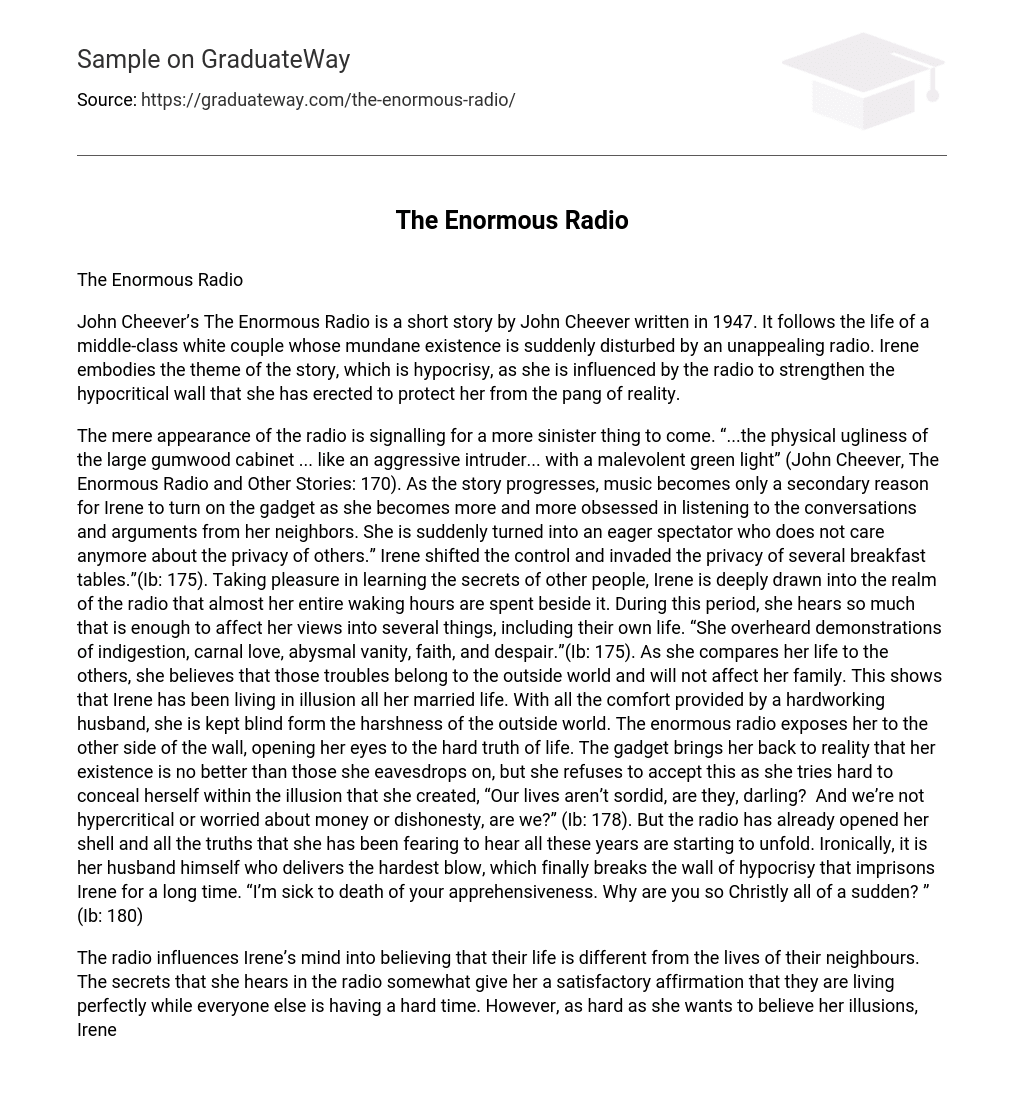John Cheever’s The Enormous Radio is a short story by John Cheever written in 1947. It follows the life of a middle-class white couple whose mundane existence is suddenly disturbed by an unappealing radio. Irene embodies the theme of the story, which is hypocrisy, as she is influenced by the radio to strengthen the hypocritical wall that she has erected to protect her from the pang of reality.
The mere appearance of the radio is signalling for a more sinister thing to come. “…the physical ugliness of the large gumwood cabinet … like an aggressive intruder… with a malevolent green light” (John Cheever, The Enormous Radio and Other Stories: 170). As the story progresses, music becomes only a secondary reason for Irene to turn on the gadget as she becomes more and more obsessed in listening to the conversations and arguments from her neighbors. She is suddenly turned into an eager spectator who does not care anymore about the privacy of others.” Irene shifted the control and invaded the privacy of several breakfast tables.”(Ib: 175). Taking pleasure in learning the secrets of other people, Irene is deeply drawn into the realm of the radio that almost her entire waking hours are spent beside it. During this period, she hears so much that is enough to affect her views into several things, including their own life. “She overheard demonstrations of indigestion, carnal love, abysmal vanity, faith, and despair.”(Ib: 175). As she compares her life to the others, she believes that those troubles belong to the outside world and will not affect her family. This shows that Irene has been living in illusion all her married life. With all the comfort provided by a hardworking husband, she is kept blind form the harshness of the outside world. The enormous radio exposes her to the other side of the wall, opening her eyes to the hard truth of life. The gadget brings her back to reality that her existence is no better than those she eavesdrops on, but she refuses to accept this as she tries hard to conceal herself within the illusion that she created, “Our lives aren’t sordid, are they, darling? And we’re not hypercritical or worried about money or dishonesty, are we?” (Ib: 178). But the radio has already opened her shell and all the truths that she has been fearing to hear all these years are starting to unfold. Ironically, it is her husband himself who delivers the hardest blow, which finally breaks the wall of hypocrisy that imprisons Irene for a long time. “I’m sick to death of your apprehensiveness. Why are you so Christly all of a sudden? ” (Ib: 180)
The radio influences Irene’s mind into believing that their life is different from the lives of their neighbours. The secrets that she hears in the radio somewhat give her a satisfactory affirmation that they are living perfectly while everyone else is having a hard time. However, as hard as she wants to believe her illusions, Irene is awakened by the radio that her life is no different from her neighbors.
Work Cited:
Cheever, John. The Enormous Radio, And Other Stories. New York, Funk & Wagnalls, 1953.





